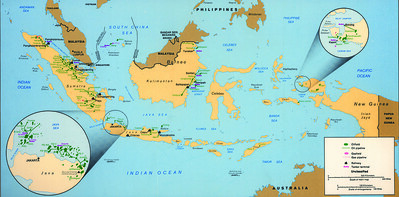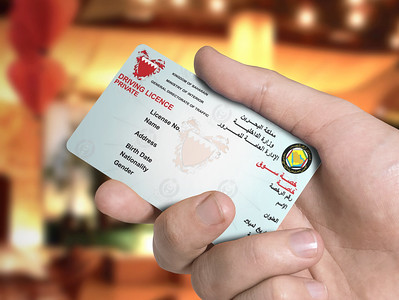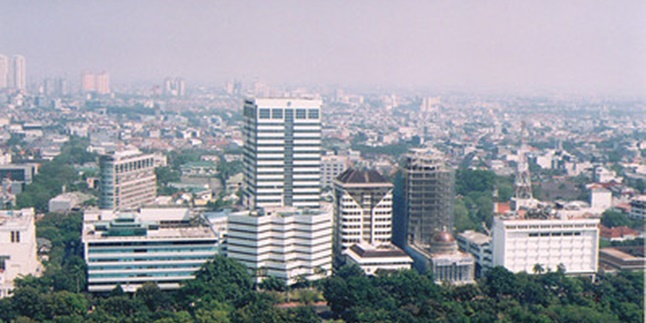Kapanlagi.com - Domicile is an important part of one's identity. Therefore, almost every registration form or personal data always includes a domicile column. In addition, in everyday conversations, domicile often becomes a topic of discussion, especially in the introduction phase. Until now, domicile has been associated with the location of permanent residence.
However, it turns out that the meaning of domicile is not only about the location of residence. More than that, domicile is a place or location that indicates a person's existence in the eyes of the law. Moreover, existence in the eyes of the law is related to a person's rights and obligations as a citizen. Such as in elections, marriages, and even deaths.
In addition, there are still many things that need to be understood about the importance of domicile in a person's identity. Therefore, read the following discussion about domicile that has been summarized from liputan6.com.
1. Definition of Domicile

(credit: flickr)
In the Indonesian Dictionary (KBBI), the meaning of the word domicile is the legal place of residence of a person. The presence of the word 'legal' in this definition indicates the legal aspect of domicile. Therefore, it is not surprising that in general, domicile is a place related to the fulfillment of a person's rights and obligations. In other words, domicile is a place that has legal ties to a person.
Although it is an important matter, there is often controversy in determining a person's domicile. Especially for a migrant or newcomer. The determination of domicile can be seen from a juridical aspect. This means that domicile is a place of residence for a person who is always present in relation to rights and obligations, even if they have a different place of residence.
In addition, the issue of domicile is also often experienced by someone who has a permanent place of residence, but has not been registered to exercise rights and obligations anywhere. In cases like this, domicile is considered to be the actual place of residence of a person.
2. Rights and Obligations Based on Domicile
As mentioned earlier, domicile has a close relationship with the legal rights and obligations of an individual. These laws are related to both public and civil law. Some of the laws concerning rights and obligations based on domicile are as follows.
1. Public Law
1) Participating in elections.
2) Election location is determined based on the designated domicile.
3) Obligation to pay land and building taxes according to the domicile.
4) Obligation to pay motor vehicle taxes according to the registered owner's domicile.
2. Civil Law
1) If the agreement does not specify the place of payment, the debtor must pay at their place of residence (Article 1393 paragraph 2 of the Civil Code).
2) The debtor must pay promissory notes/checks to the holder (creditor) at the debtor's place of residence/address (Article 137 of the Civil Code).
3) The debtor has the right to receive credit from the creditor at the creditor's office. This also applies to the obligation to repay the credit at the creditor's office.
3. Role of Domicile

(credit: flickr)
Domicile is not just a place of birth or residence. There is a legal connection between a person and their domicile. However, on the other hand, the clarity of a person's domicile also brings benefits. This is because, as a place for the fulfillment of legal rights and obligations, domicile has several specific roles. The roles of domicile are as follows.
1. Facilitating all matters or connections of a person with legal issues or courts.
2. Determining the competent court to adjudicate a person with specific legal obligations. This is closely related to the regulation that the court authorized to adjudicate a person in civil cases is the court within the jurisdiction of the plaintiff or defendant's domicile. (Article 118 paragraph 1 and 2 of the H.I.R)
3. In marriage, it turns out that domicile is also necessary because domicile is used to determine the location where a person must perform a marriage. This is related to the regulation that marriage must be conducted in the domicile of one of the parties. (Article 76 of the Civil Code)
4. Types of Domicile

(credit: flickr)
Until now, we have known that domicile is a place of residence or where someone settles. More than that, it turns out that domicile is divided into several types. Each type of domicile has different explanations and meanings. Therefore, it is important to understand both. The types of domicile are bound domicile and free domicile, here is an explanation of both.
1. Bound Domicile
Bound domicile is a domicile that is determined that someone must adjust to the existence of their family. For example, a wife who must have the same domicile as her husband, or a child who must have the same domicile as their parents.
Some laws that serve as the basis for bound domicile are as follows.
1) The wife's place of residence is the same as the husband's place of residence (article 32 of Law No.1 of 1974).
2) The child's place of residence follows the parents' place of residence (article 47 of Law No.1 of 1974).
3) The place of residence of a person under guardianship follows the place of residence of their guardian (article 50 of Law No.1 of 1974).
2. Free Domicile
In contrast to a fixed domicile, free domicile means that someone is entitled to freely determine their domicile or place of residence. Free domicile is related to civil authority and appointment.
Some laws that form the basis of free domicile, among others, are as follows.
1) The place of residence that is forced to be chosen is determined by law. (Article 106:2 of the Civil Code)
2) The freely chosen place of residence, for example, a voluntarily chosen place of residence, must be done in writing, meaning it must be done with a deed. If someone moves, then for legal actions that they take, they still have their residence in the old place (Article 24:1 of the Civil Code).
Those are some explanations about domicile, which is a place of residence that contains legal obligations. Hopefully, it is useful and can increase knowledge.
(kpl/psp)
Disclaimer: This translation from Bahasa Indonesia to English has been generated by Artificial Intelligence.















